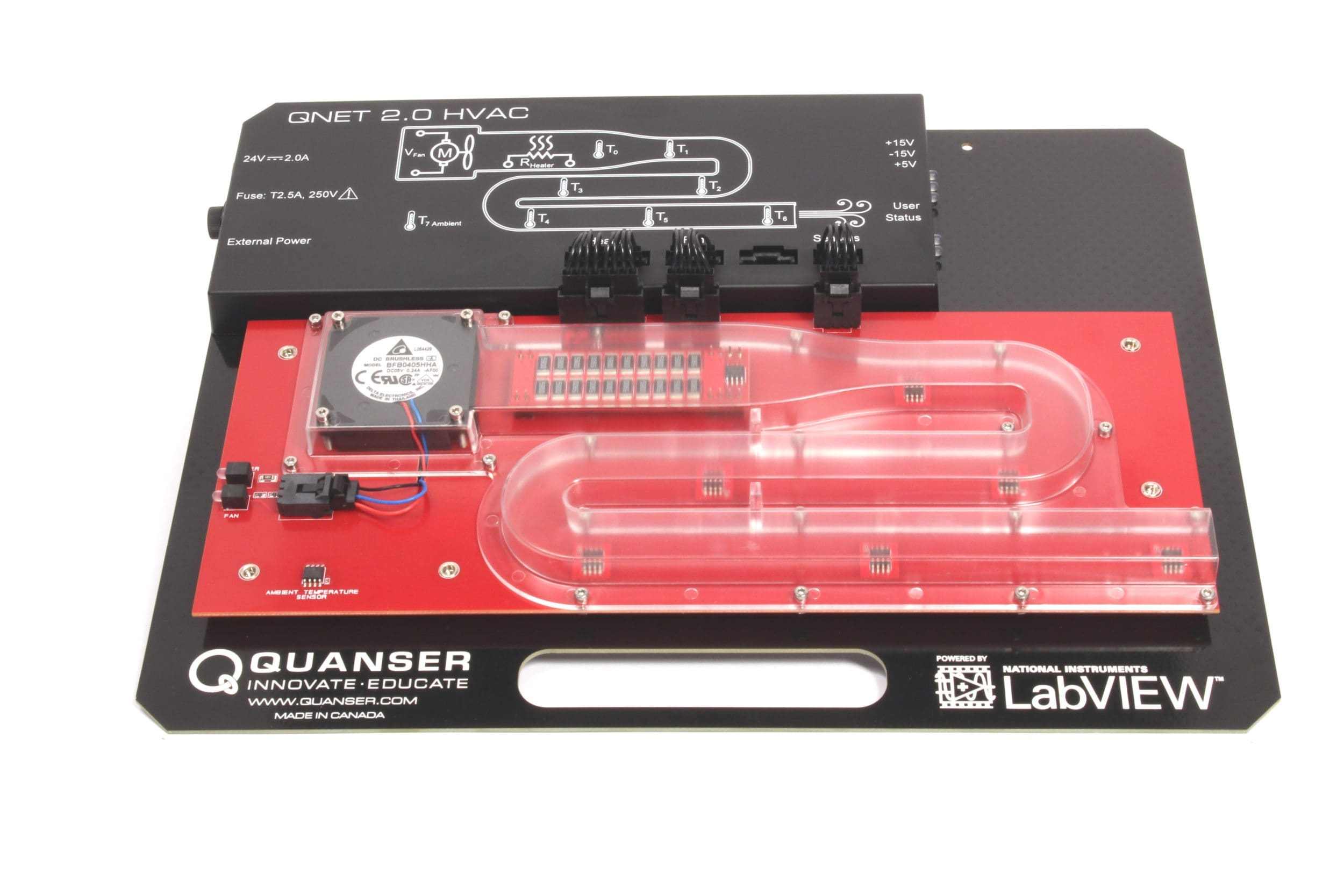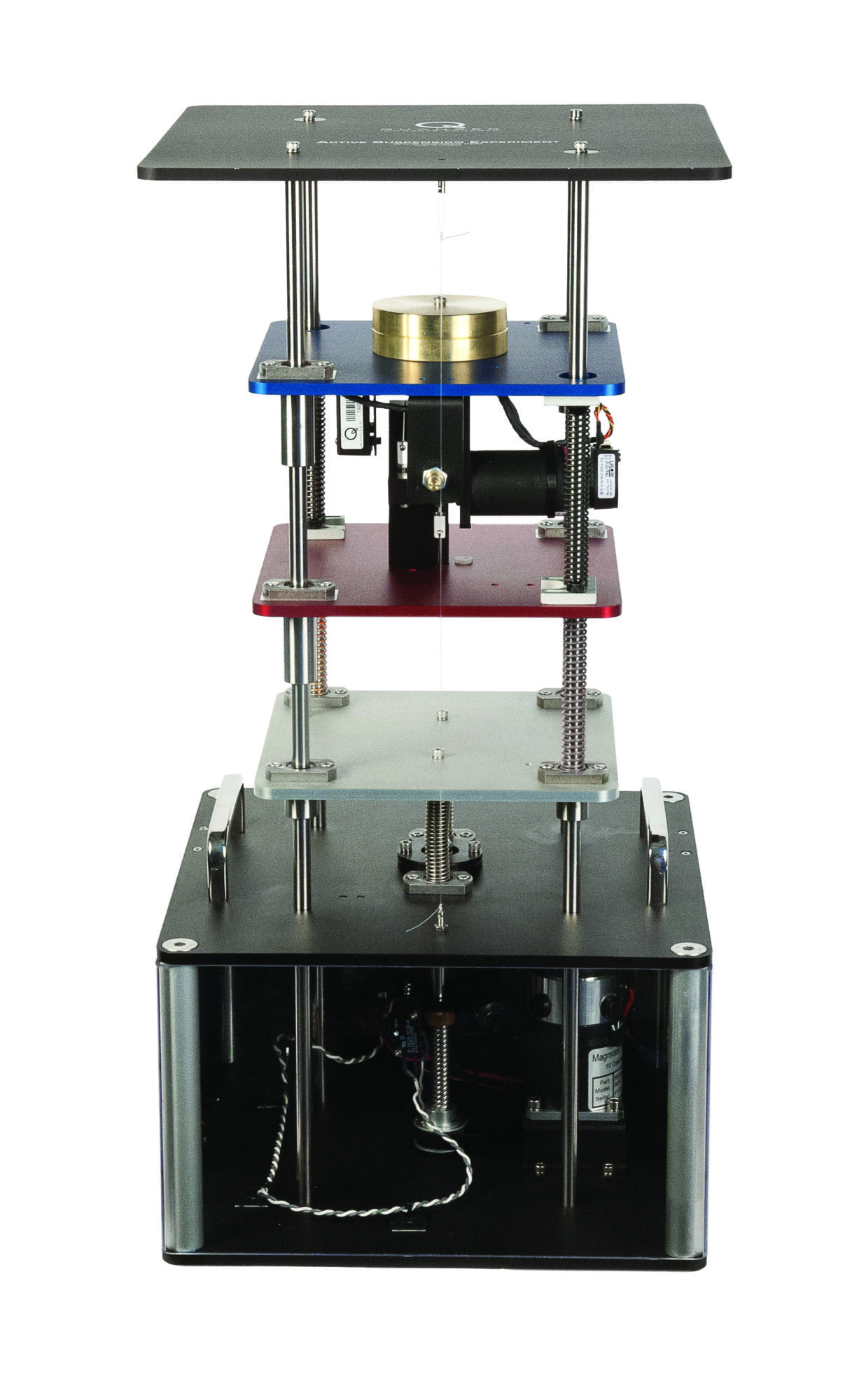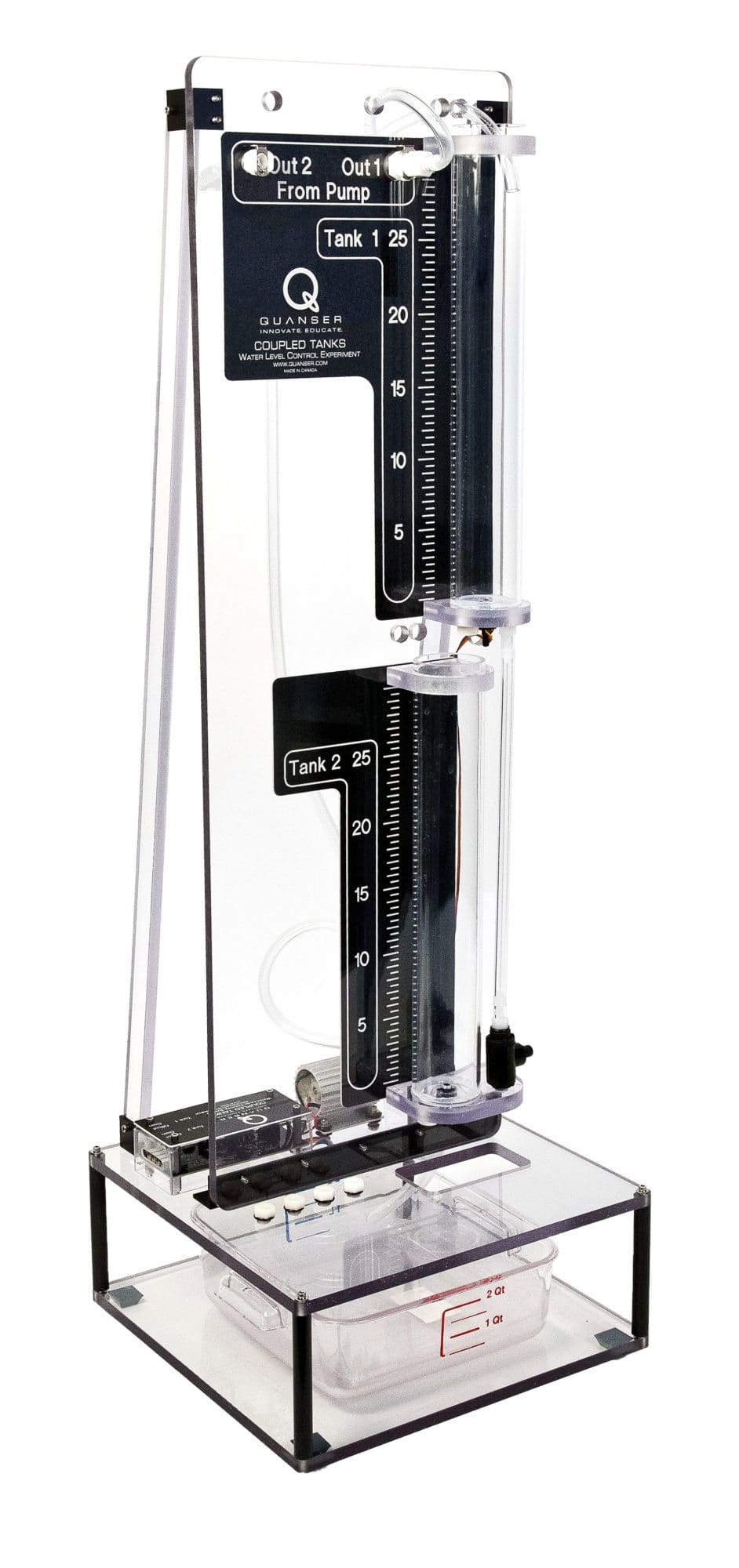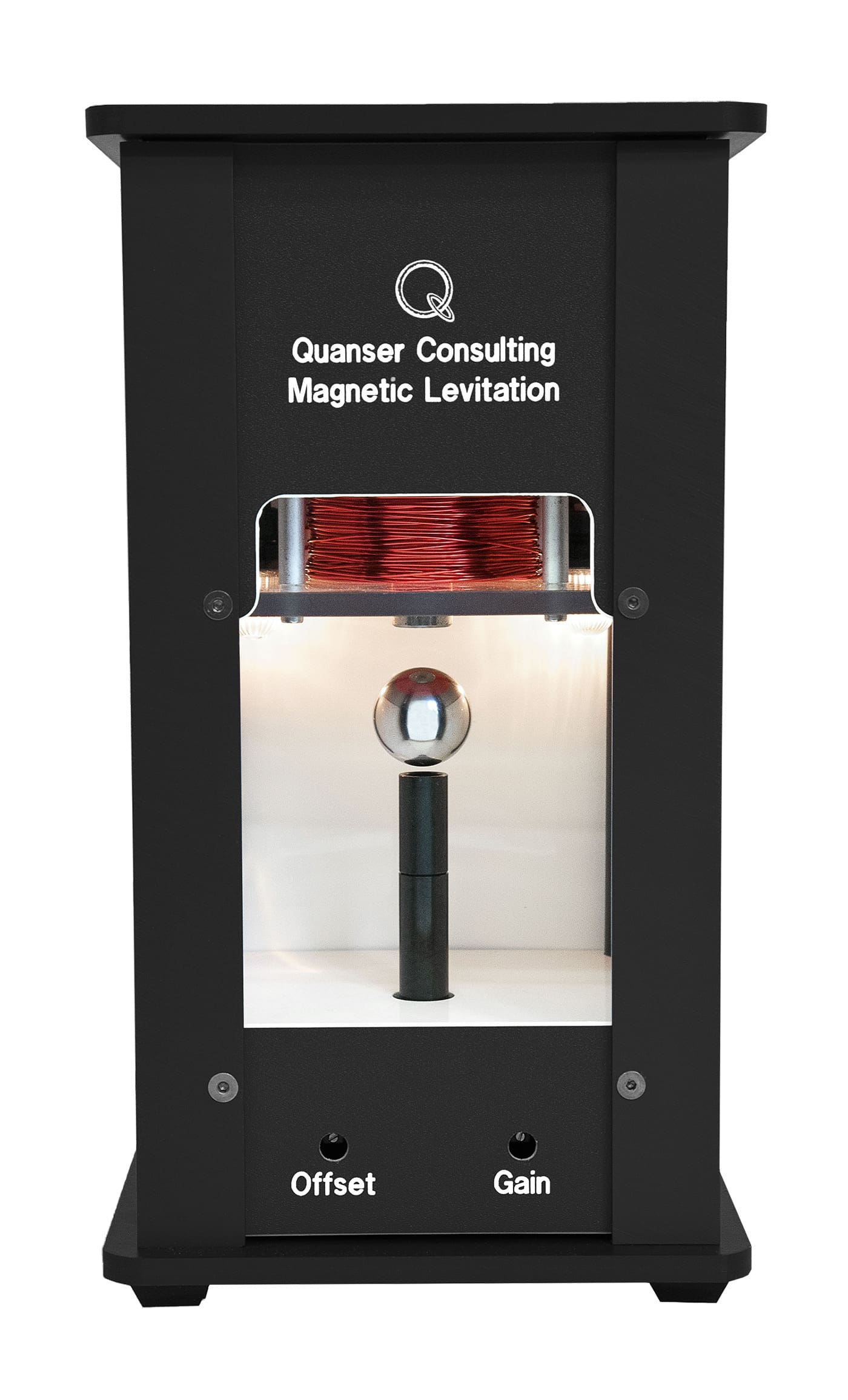Heat Flow Experiment
This product is no longer available.
The Quanser Heat Flow Experiment demonstrates control topics related to fluid dynamics and thermodynamics. It introduces a “bump test” method, a simple technique used to find the first-order model of the system and helps students better understand temperature control strategies, such as an on-off control scheme using a relay switch, and advanced PID control topics including set-point weight and integral anti-windup.
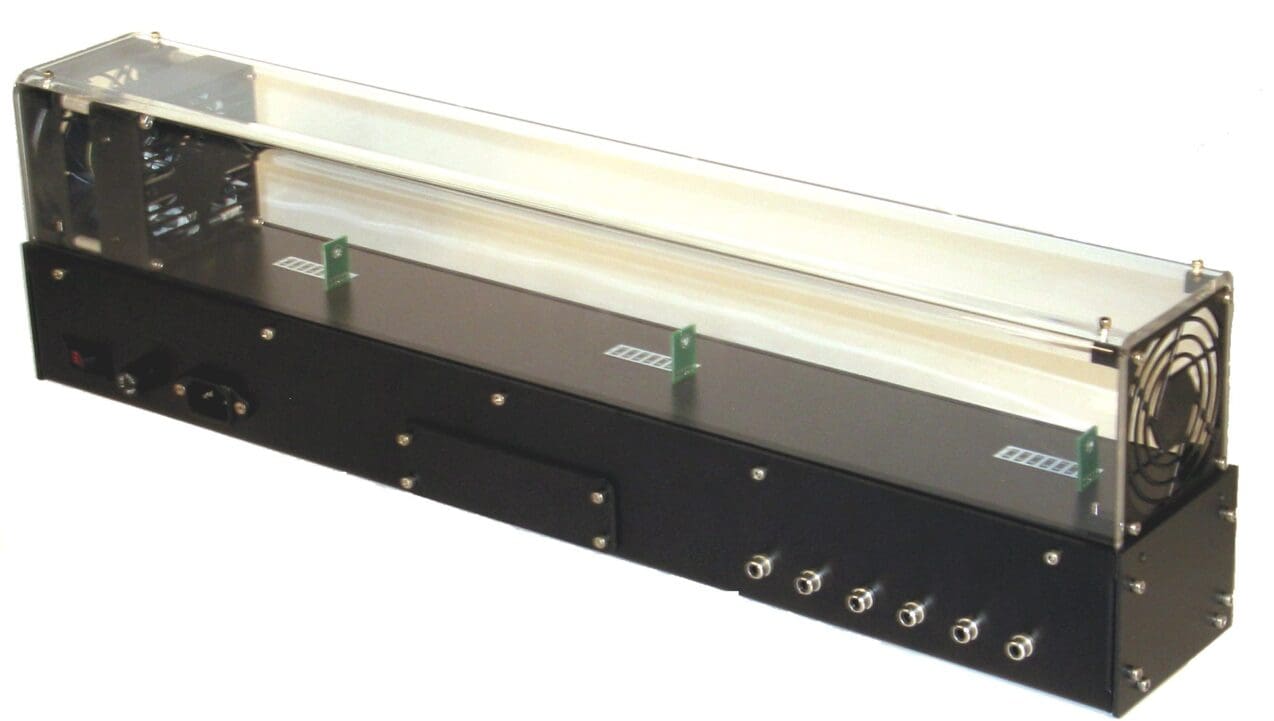
Product Details
The Quanser Heat Flow Experiment consists of a fiberglass chamber that is equipped with a coil-based heater and a blower at one end, and three fast settling platinum transducers temperature sensors located equidistantly along the chamber. It has a built-in amplifier to deliver power to the heater and blower. The power delivered to the heater and blower is controlled using analog signals. The fan speed can also be controlled using an analog signal and is measured by a tachometer mounted on the blower measuring angular rate of the blower fan.
- Fast settling platinum temperature transducers to measure the chamber air temperature
- Tachometer for measuring angular rate of the blower fan
- Coil-based heater
- Solid Plexiglas chamber
| Device dimensions (L x H x W) | 50 cm x 15 cm x 10 cm |
| Device mass | 0.5 kg |
| Cross sectional chamber area | 0.0064 m² |
| Blower nominal input voltage | 6 V |
| Blower nominal airflow | 1.02 m³/min |
| Maximum wind speed | 159.4 m/min |
| Blower maximum speed | 2700 RPM |
| Tachometer calibration gain | 1064 RPM/V |
| Heater maximum power (at 5 V) | 400 W |
| Temperature sensor calibration gain | 20 °C/V |
| Temperature sensor settling time | 4 s |
- Experimental modeling – step response
- Transfer function representation
- Model validation
- PID control
- Set-point weighting
- Integrator windup
- Feed-forward
The following additional components are required to complete your workstation, and are sold separately:
For Simulink
- QUARC® add-on for MATLAB®/Simulink®
- Quanser Q8-USB DAQ device

